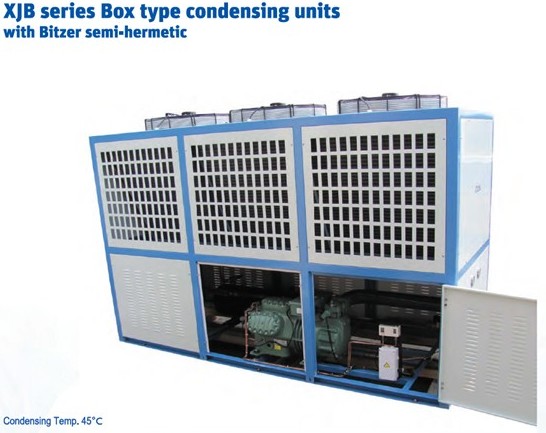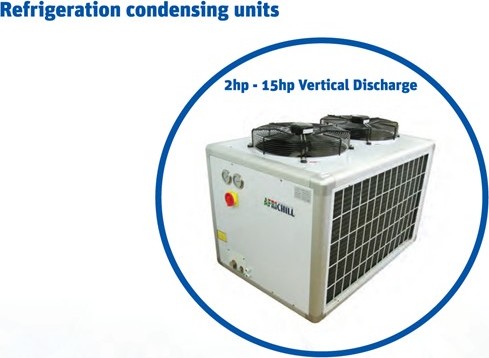In the realm of Heating, Ventilation, and Air Conditioning, condensing units play a pivotal role in ensuring efficient and effective climate control. These essential components are integral to the functioning of HVAC systems, contributing significantly to cooling efficiency and overall performance.

Understanding condensing unit
A condensing unit is the outdoor component of split-system air conditioners and heat pumps. Comprising the compressor, condenser coil, and fan, these units work collectively to facilitate the heat transfer process. Their primary function involves releasing heat absorbed from indoor spaces to the outside environment during the cooling cycle.
Heat Transfer Mechanism
The core function of the condensing unit revolves around the thermodynamic principle of heat transfer. As the refrigerant gas enters the compressor, it undergoes compression, converting it into a high-pressure, high-temperature gas. This heated gas is then directed to the condenser coil within the unit.
The condenser coil facilitates the transfer of heat from the refrigerant to the surrounding outdoor air. The fan in the condensing unit aids in this process by blowing air over the coil, allowing the heat to dissipate. As the refrigerant releases heat, it undergoes a phase change, transitioning into a high-pressure liquid.
Role in Cooling Efficiency
Efficient operation of the condensing unit is paramount for optimal cooling efficiency. Proper sizing, installation, and maintenance of these units significantly impact the overall performance of an HVAC system. An adequately sized condensing unit ensures that the system can effectively remove heat from indoor spaces without overworking the components.

Regular maintenance, including cleaning the condenser coils and ensuring proper airflow, is crucial. Any dirt or debris accumulation on the coils can hinder heat transfer, reducing the unit's efficiency. Additionally, ensuring that the unit has adequate clearance and is free from obstructions further enhances its functionality.
Energy Efficiency and Environmental Impact
Efficiency in a condensing unit directly correlates with energy efficiency in HVAC systems. When these units operate at optimal levels, they consume less energy to achieve the desired cooling effect. This translates to reduced energy consumption and lower utility bills while minimizing the system's environmental impact by conserving resources.
Technological advancements have led to the development of high-efficiency condensing units that utilize innovative features such as variable-speed compressors and enhanced refrigerants. These advancements not only improve efficiency but also align with environmental standards by reducing greenhouse gas emissions and promoting sustainability.
Importance in Climate Control Precision
Precision in climate control hinges on the ability of the condensing unit to maintain consistent and desired indoor temperatures. These units work in conjunction with indoor evaporator coils to ensure a balanced and comfortable environment. By regulating the heat exchange process, the condensing unit contributes to maintaining steady temperatures and humidity levels indoors.
Conclusion
Condensing units from AFRICHILL are indispensable components in HVAC systems, playing a crucial role in optimizing climate control. Their efficient operation, proper maintenance, and technological advancements are fundamental to achieving cooling efficiency, energy conservation, and environmental sustainability. Understanding and prioritizing the role of a condensing unit are key to ensuring the optimal functioning of HVAC systems, and fostering comfort, efficiency, and environmental responsibility in both residential and commercial spaces. Call them at +27 (0) 11 396 2402 to place your order.

No comments:
Post a Comment